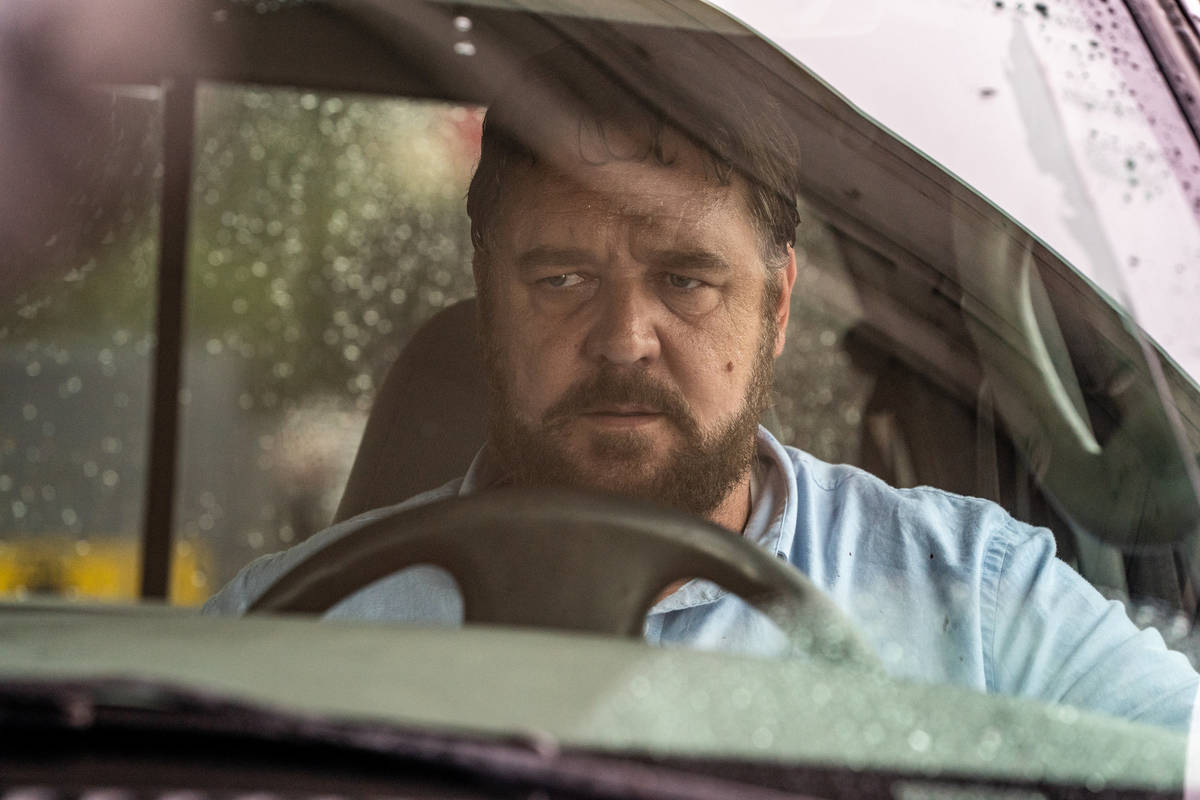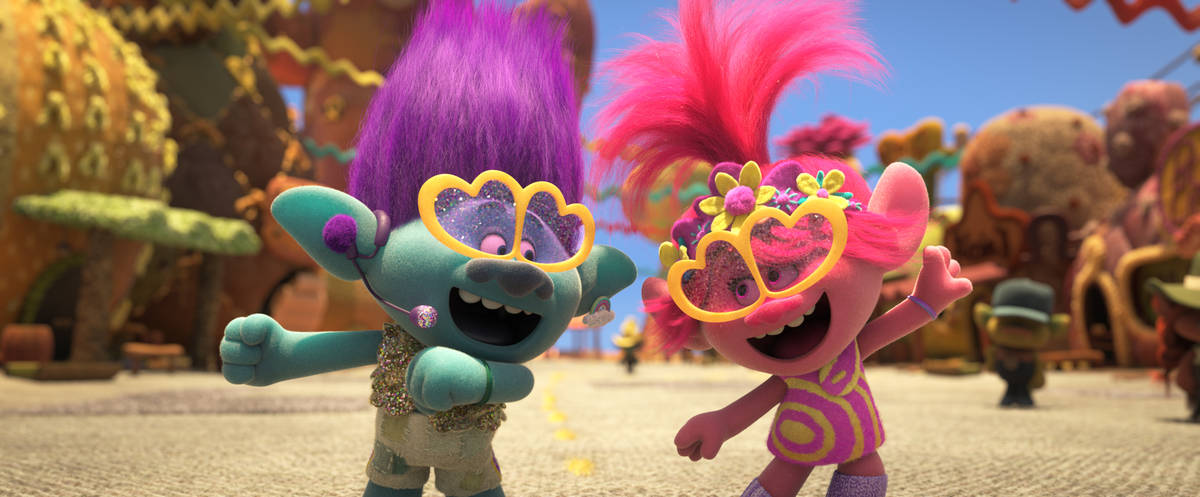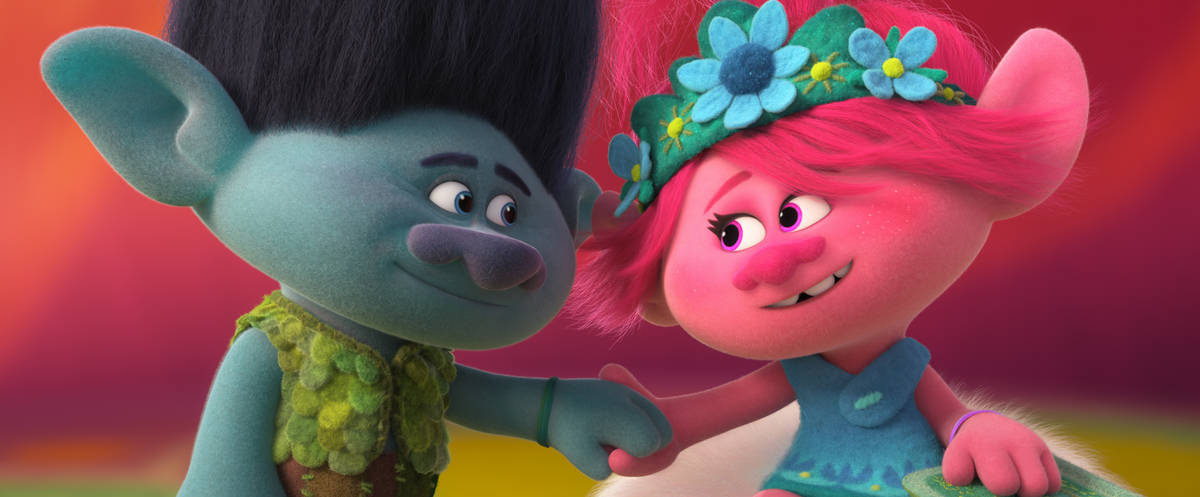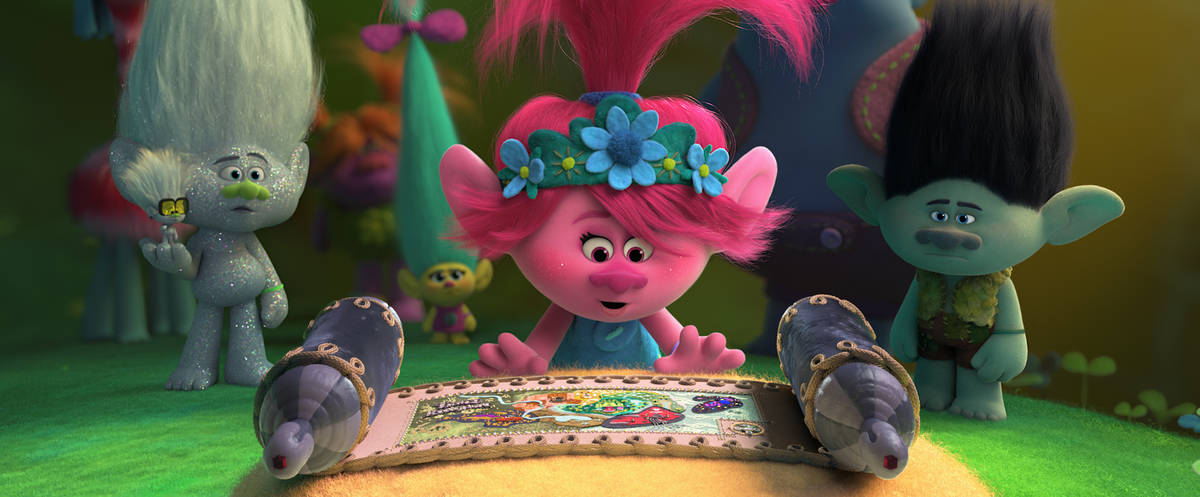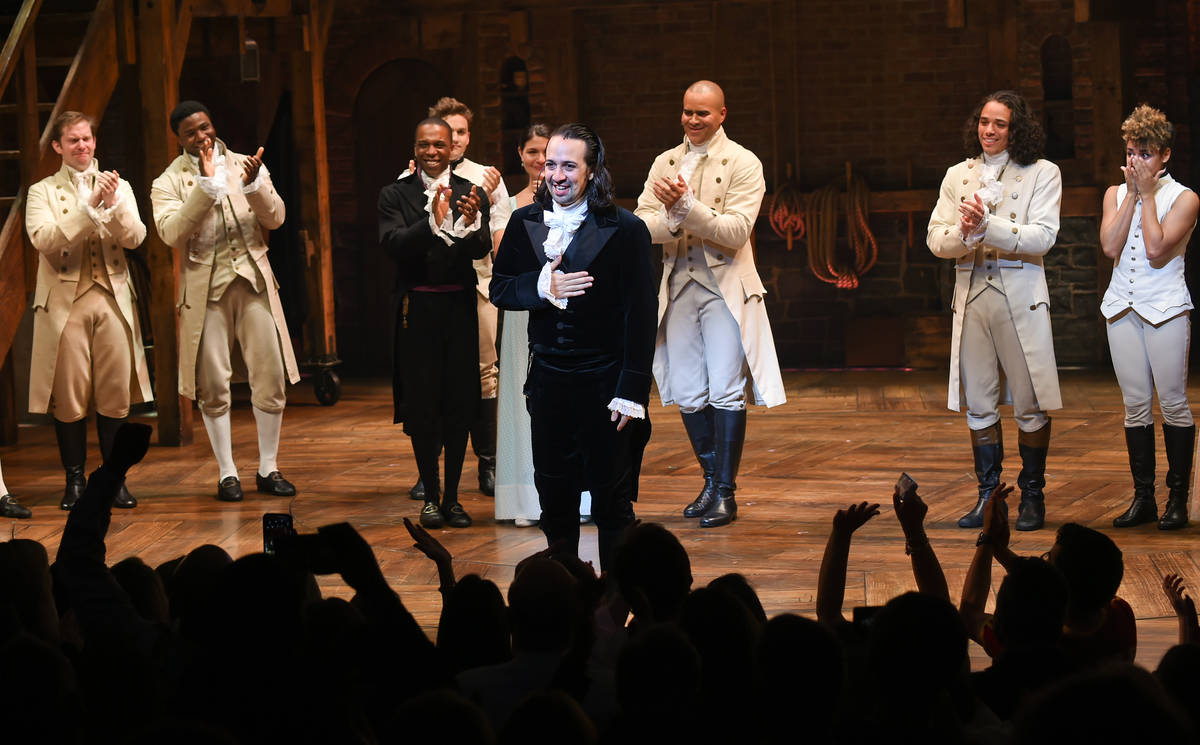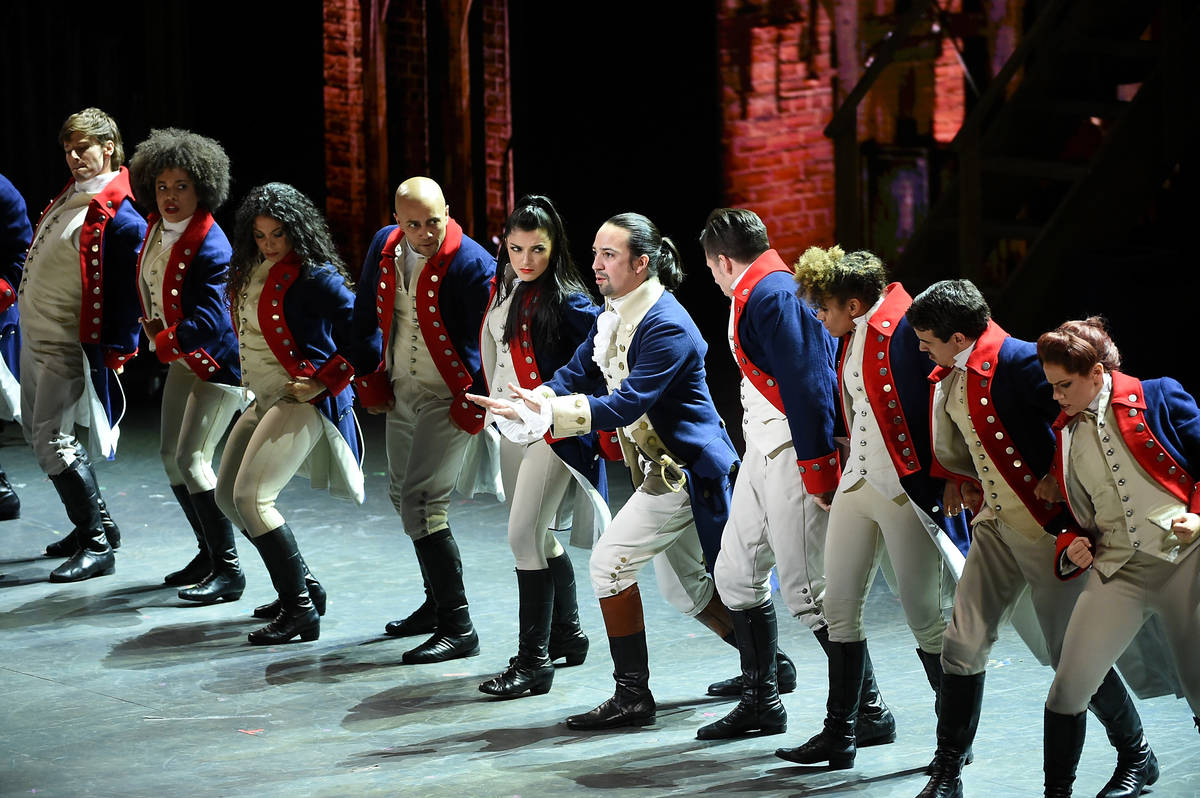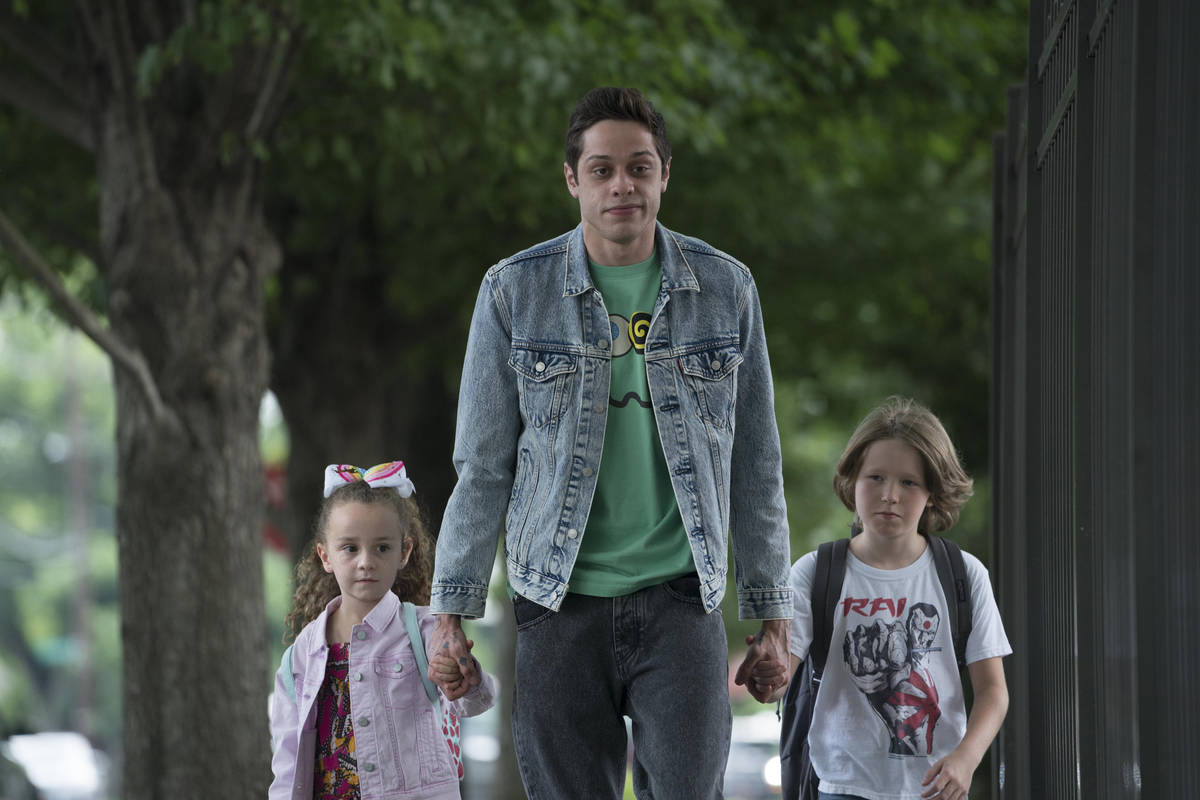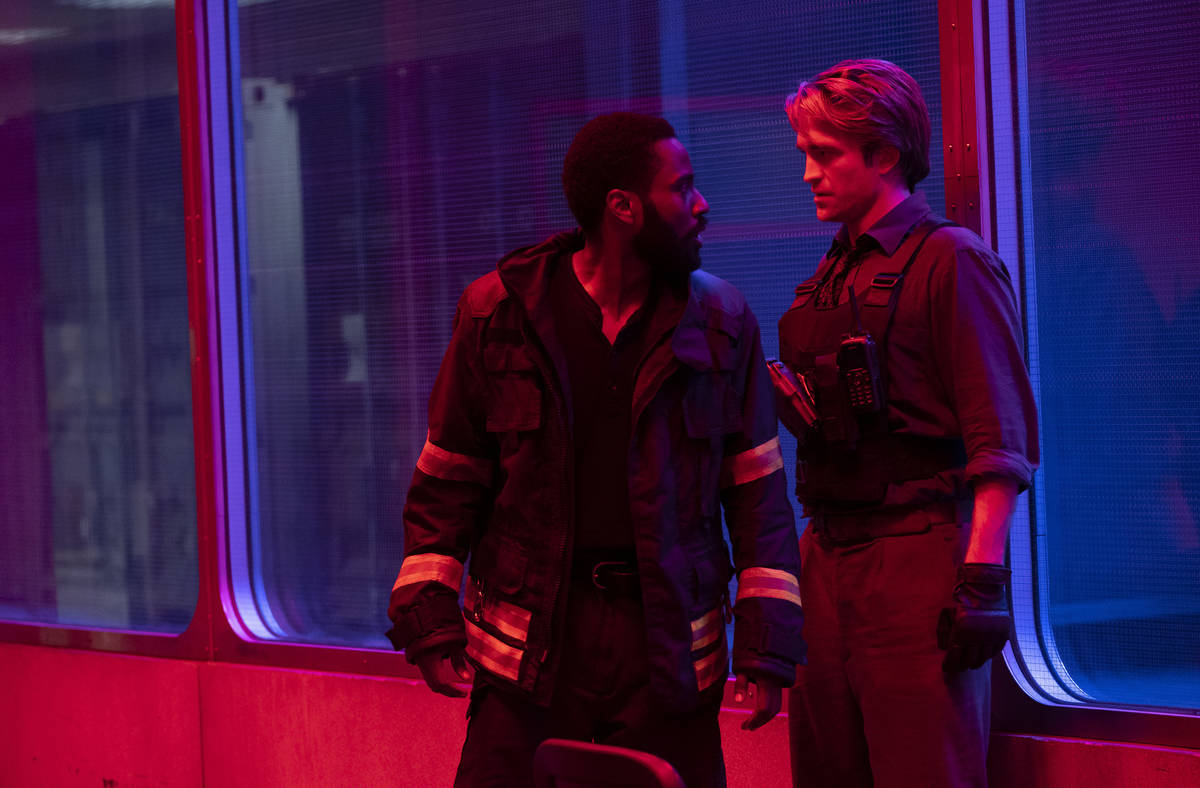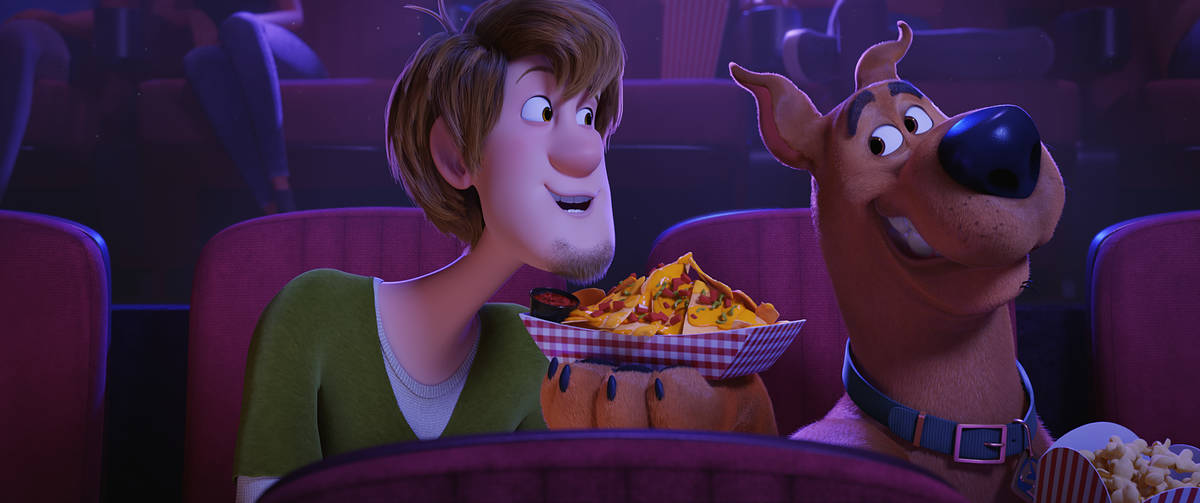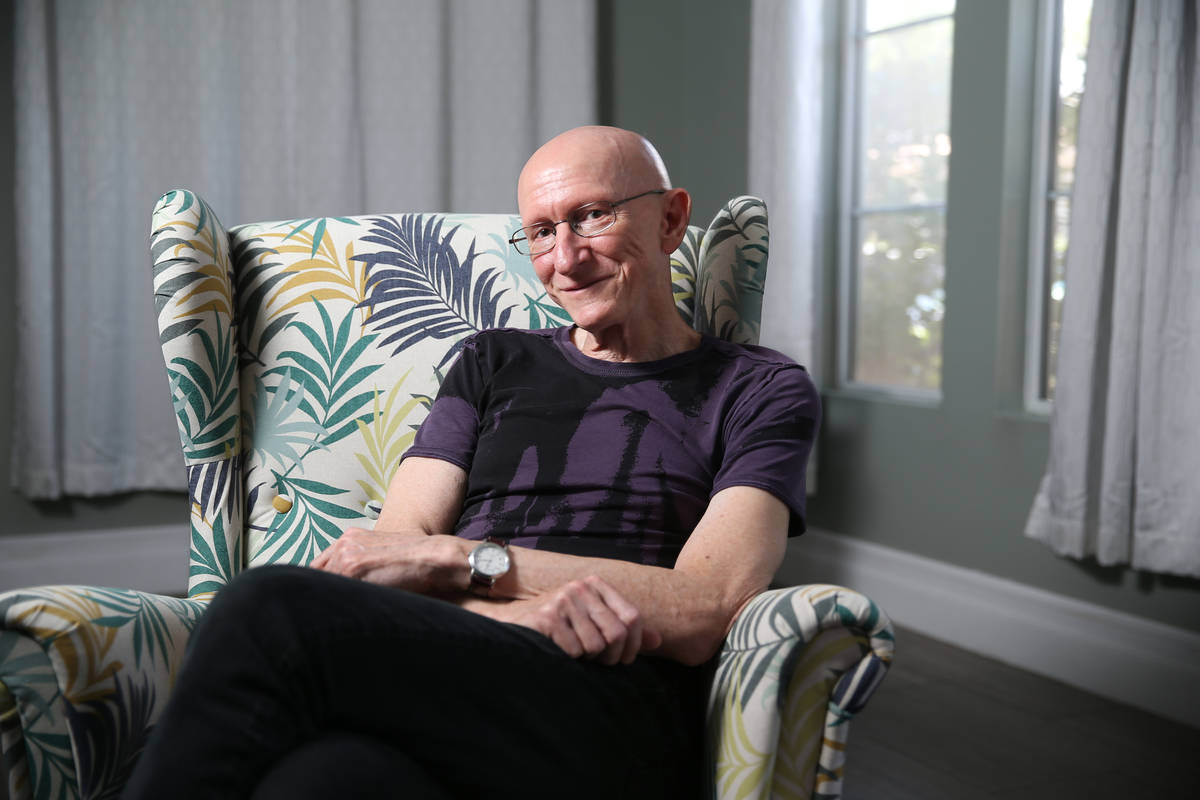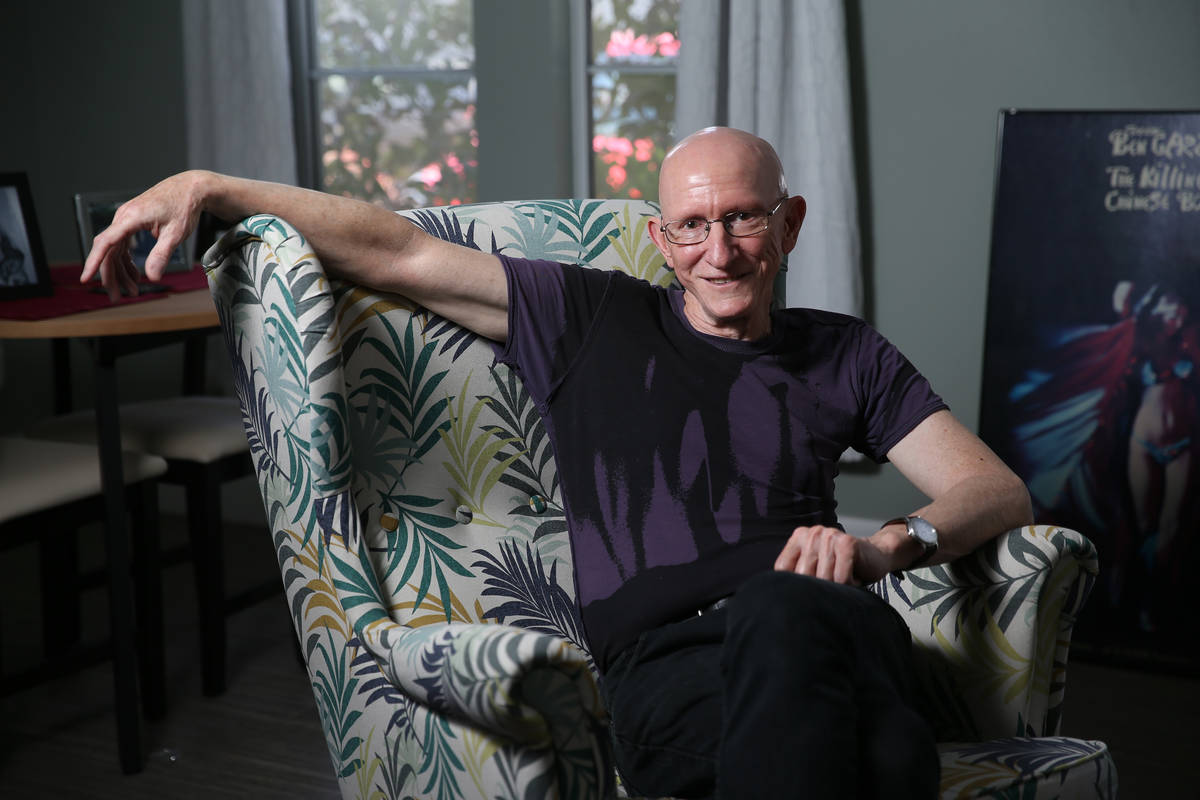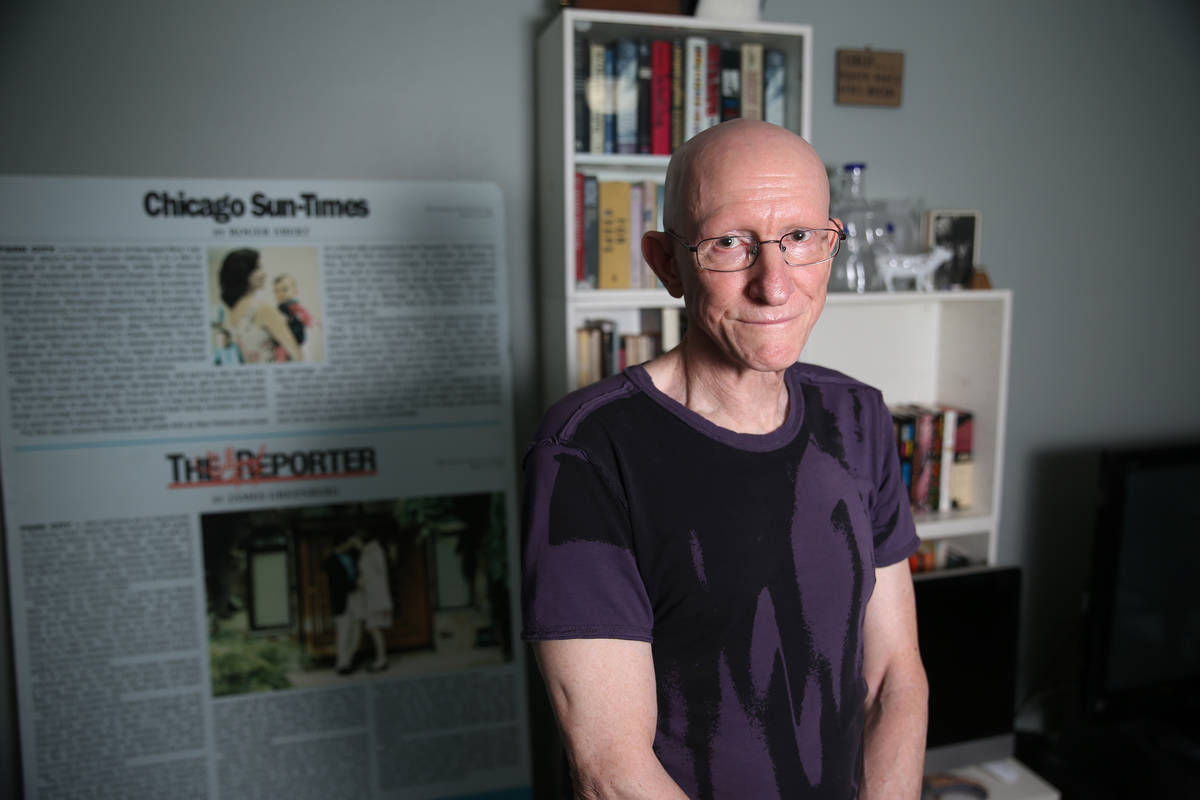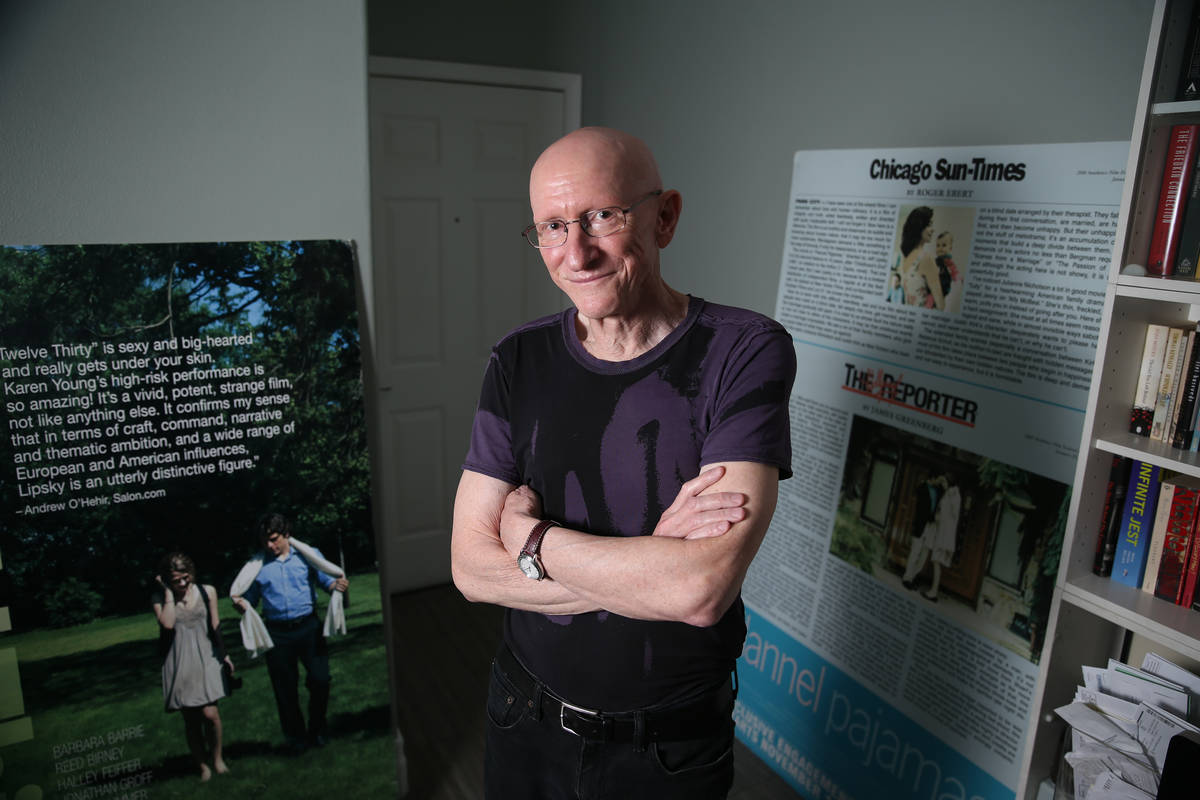Movie theaters face long wait to reopen, win back audiences
Jeff Lipsky says he can’t wait to go to the movies again.
He’s going to have to, though.
Movie theaters are expected to be among the last establishments to reopen, both in Nevada and across the country, with a target date of late June or early July. Even that probably will be too soon for comfort for the writer-director, who relocated to Las Vegas in 2018 after more than 40 years of working in film distribution in New York City.
Asked when he’ll return to the movies, Lipsky replied, “when I feel I can walk into a theater and not jump 10 feet in the air when a guy sitting two rows behind me coughs.”
A global effort
Unlike other businesses that have been scrambling to reopen as soon as Gov. Steve Sisolak gave the OK, there’s no rush for movie theaters to return, considering there’s no new product on the horizon.
No studio is foolish enough to release anything of merit until the overwhelming majority of the country has reopened — and that doesn’t even take into consideration the rest of the planet, which accounts for roughly three-fourths of all box-office revenue.
The James Bond adventure “No Time to Die” was the first movie to acknowledge the looming crisis in early March when its opening was delayed from April 10 until Nov. 25. Since then, virtually every major movie has been pushed to later this year or, in several cases, next summer. Anything else could have been catastrophic, as evidenced by the releases of the superhero tale “Bloodshot,” the political satire “The Hunt” and the faith-based drama “I Still Believe.” All three tried to pretend everything was normal and opened March 13, only to see every indoor movie theater in the country shutter by midweek.
The one blockbuster that refused to move — Christopher Nolan’s time-traveling espionage thriller “Tenet” — is still scheduled for a July 17 release that would mark a tentative return to moviegoing.
On Tuesday, the small studio behind the Russell Crowe road-rage thriller “Unhinged” announced a July 1 opening. Disney’s live-action “Mulan” is scheduled to open July 24, having been delayed from its March 27 release. Those are currently the only movies expected in theaters before “The SpongeBob Movie: Sponge on the Run” on Aug. 7.
With that July 17 target in mind, theaters are looking at a soft reopening, no earlier than late June. During that time, they’ll rely on repertory content — blockbusters, favorites and critically acclaimed hits from previous decades — for a short time.
“I suspect that sort of has a life of a couple of weeks,” said Rafe Cohen, president of Galaxy Theatres. “Two, three weeks, maybe, at the most.”
Safety first
Those weeks will be crucial for employees and customers to get acclimated to the new normal.
Several of the safety measures — reduced theater capacity, socially distant seating plans and increased cleaning and sanitizing — will be carryovers from the final days theaters remained open, said Francisco Schlotterbeck, chief operating officer of Maya Cinemas.
Moviegoers at Maya’s North Las Vegas location can expect to find all employees wearing masks and gloves, as well as new plexiglass barriers at the concession stands, where prepackaged condiments will become the norm. The biggest change, Schlotterbeck said, would come from technology.
“We’re going to try to move all the cash transactions that we had in our box office to our technology platforms, the website and app,” he said. “So, basically, you will try to avoid any kind of direct contact with our box office.”
By planning ahead, Maya customers can limit their interactions with other employees as well. When they purchase their tickets online, moviegoers can add and pay for their food and drinks. Once they scan their tickets, Schlotterbeck said, that will alert the kitchen to start preparing their order, which will be delivered to their seats.
With three area locations — Boulevard Mall, Cannery and Green Valley — Galaxy is behind only Regal and Century as the largest local theater brands.
The company also is planning additional sanitizing throughout its theaters and added protections at the concession stands, Cohen said. He’s receiving guidance from the National Association of Theatre Owners, whose Las Vegas-based CinemaCon trade show was a victim of the coronavirus in April. Cohen said he’s also looking at what airlines, shopping malls and other businesses are doing, because he doesn’t want going to the movies to feel drastically different than visiting other establishments.
“Some of it may be as simple as keeping doors open,” Cohen said of the changes, “so you don’t have to pull the door open yourself.”
Convincing the public
Reopening theaters in a COVID-19 world is only half the battle.
Maybe even less than that.
Cinema owners also have to hope that their safety protocols are enough to put people in their seats.
“There are some customers, they will take time to go back to the theaters,” admitted Maya’s Schlotterbeck. “Especially our senior customers.”
Harold Mintz, president of the Las Vegas-based movie market research company Cinemascore, also sees those moviegoers, who are at greater risk from the coronavirus, as being more cautious.
“I think older people will be more reluctant, even in the future, to go to the movies,” he said. But there’s a caveat that’s as true as it is blunt: “The industry, I don’t think, relies on 65-year-old people.”
Mintz has a point. A March report from the Motion Picture Association showed that in 2019, Americans aged 25-39 accounted for 27 percent of frequent moviegoers, nearly double the rate of those ages 60 and older, who made up 14 percent.
Movie theaters shouldn’t feel the effects of the coronavirus too greatly, Mintz said, as long as younger moviegoers return in their usual numbers.
“How many of these kids that are 25 years old are fearing this virus?” he asked. “They’re not.”
UNLV sociology professor Michael Ian Borer thinks many moviegoers will be hesitant, at least in the short term.
“There is research that says the enjoyment of a movie can be increased when you’re around others. So if you’re hearing others laugh or ‘ooh’ and ‘ahh’ at the same thing, that can enhance one’s experience,” said Borer, who also teaches a course on popular culture. “Now is that enough of a carrot to get people to go out to see a film in a theater? I don’t think that carrot’s big enough. I don’t think it’s worth it enough, because there are so many other options that are quote-unquote safer.”
Watching from home
Those options include the streaming services that quarantined consumers have been using almost twice as much as the year before, according to Nielsen tracking.
Numerous high-profile movies that were in theaters when they closed moved to streaming during their theatrical window, that period of roughly 72 days between a movie’s release in cinemas and its digital release that’s the bedrock of the exhibition industry.
“Trolls World Tour” had been readying for an April 17 theatrical release. Rather than waiting out the theater closures, Universal released it April 10, available as a 48-hour digital rental for $19.99. Its success — an estimated $95 million in its first 19 days — inspired other titles, including this weekend’s animated Scooby-Doo movie “SCOOB!” and the June 12 release of the Pete Davidson comedy “The King of Staten Island,” to go the on-demand route.
“Trolls,” though, was buoyed by the studio’s theatrical-sized advertising spend, marketing tie-ins and its built-in audience as a sequel, leading Maya’s Schlotterbeck and Galaxy’s Cohen to downplay its earnings as an isolated event.
“I think ‘Trolls World Tour’ did well just because they had a captive audience. If you have a 6-year-old and an 8-year-old at home, if you can find two hours that can occupy them, that’s a great victory that maybe was worth the $20,” Cohen said. “I don’t think it portends anything really of significance for the future.”
Even Tuesday’s news that Disney was releasing “Hamilton,” its filmed stage version with the original Broadway cast, July 3 on Disney+ didn’t spook Cohen. The movie, a reported $75 million acquisition, had been expected to be a major event under its originally planned opening in theater in October 2021.
“I think this more reflects Disney’s need/desire to help their streaming service rather than any significant movement away from their strong commitment to the theatrical release of their blockbusters,” he said.
The latest challenge
Streaming isn’t the first perceived threat to moviegoing. Theaters seemingly have been under attack almost as long as they’ve existed.
“It’s a unique experience that’s been a part of American culture, at this point, for something like a hundred years,” Cohen said. “It’s weathered wars and other trials and tribulations along the way. … I think that there’s certainly a big place for theatrical releases and movie theaters in the future, and I don’t think that will change.”
Despite those other challenges — from the likes of radio, television, VCRs, DVDs and the internet — American movie theaters had never experienced a complete and total shutdown.
They’ve seen regional, weather-related closures. Some theaters closed, briefly, after the attacks of Sept. 11, 2001. But not only did theaters remain open during World War II, they thrived. In 1942 alone, the movie industry cranked out “Casablanca,” “Bambi,” “The Pride of the Yankees” and “Yankee Doodle Dandy” along with four Abbott and Costello films and three starring Bob Hope.
Borer, the sociologist, is less convinced that theaters will rebound — at least in the short term.
“I think people are going to be hesitant for a while,” he said. “It’s going to have to be pitched to them that it’s worth it to get out, see this together, see it on the big screen. I don’t know what that movie looks like. If I did, I’d be making a lot more money right now.”
Nothing else like it
Lipsky, the filmmaker, is absolutely hesitant to return to theaters until he feels safe, and he acknowledges that others are as fearful as he is. Once that trepidation subsides, when people no longer worry that being in public will expose them to a life-threatening illness, he said, “I think they’re going to come back in record-breaking numbers.”
During his four decades in film distribution, Lipsky worked with cinematic greats including Federico Fellini, Jean-Luc Godard and Jim Jarmusch. He loves everything about films — except watching them at home. Still, he turned to premium video on demand to see “Never Rarely Sometimes Always,” the Sundance and Berlin film festival favorite about a teenage girl seeking an abortion that had its theatrical run stopped dead in its tracks by the coronavirus.
He won’t do that again.
“I would have been able to fully immerse myself in that place at that time with this girl,” Lipsky said, had he been able to see the film in a theater, “and not look askance for a split second and see my collection of bottled waters near my refrigerator.”
Those little distractions break whatever hold a movie may have on a viewer, he maintained.
“That’s what’s so special about the theatrical moviegoing experience: You’re not at home. You’re inside that world. You can’t enter that world sitting in your easy chair in your living room. Can’t be done. You can appreciate a movie. You can laugh at a comedy. But it’s not the same. It never will be.”
Contact Christopher Lawrence at clawrence@reviewjournal.com or 702-380-4567. Follow @life_onthecouch on Twitter.



